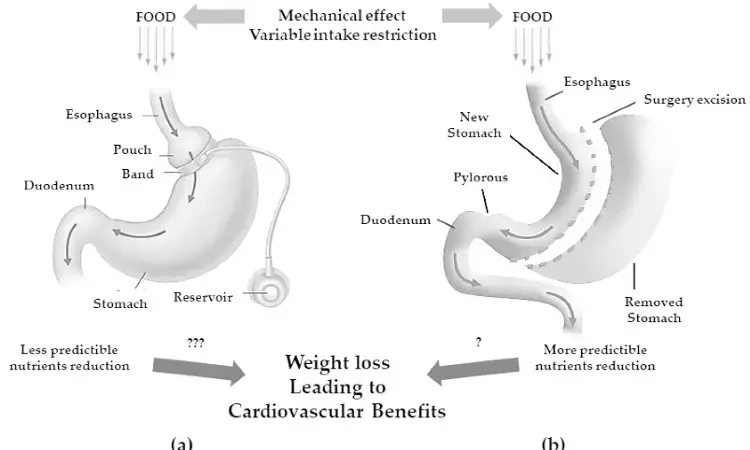- Home
- Medical news & Guidelines
- Anesthesiology
- Cardiology and CTVS
- Critical Care
- Dentistry
- Dermatology
- Diabetes and Endocrinology
- ENT
- Gastroenterology
- Medicine
- Nephrology
- Neurology
- Obstretics-Gynaecology
- Oncology
- Ophthalmology
- Orthopaedics
- Pediatrics-Neonatology
- Psychiatry
- Pulmonology
- Radiology
- Surgery
- Urology
- Laboratory Medicine
- Diet
- Nursing
- Paramedical
- Physiotherapy
- Health news
- Fact Check
- Bone Health Fact Check
- Brain Health Fact Check
- Cancer Related Fact Check
- Child Care Fact Check
- Dental and oral health fact check
- Diabetes and metabolic health fact check
- Diet and Nutrition Fact Check
- Eye and ENT Care Fact Check
- Fitness fact check
- Gut health fact check
- Heart health fact check
- Kidney health fact check
- Medical education fact check
- Men's health fact check
- Respiratory fact check
- Skin and hair care fact check
- Vaccine and Immunization fact check
- Women's health fact check
- AYUSH
- State News
- Andaman and Nicobar Islands
- Andhra Pradesh
- Arunachal Pradesh
- Assam
- Bihar
- Chandigarh
- Chattisgarh
- Dadra and Nagar Haveli
- Daman and Diu
- Delhi
- Goa
- Gujarat
- Haryana
- Himachal Pradesh
- Jammu & Kashmir
- Jharkhand
- Karnataka
- Kerala
- Ladakh
- Lakshadweep
- Madhya Pradesh
- Maharashtra
- Manipur
- Meghalaya
- Mizoram
- Nagaland
- Odisha
- Puducherry
- Punjab
- Rajasthan
- Sikkim
- Tamil Nadu
- Telangana
- Tripura
- Uttar Pradesh
- Uttrakhand
- West Bengal
- Medical Education
- Industry
Gastric Bypass Associated with Lower MACE Risk Compared to Sleeve Gastrectomy, suggests JAMA study

Researchers have found in a new research that Patients who underwent gastric bypass surgery showed a lower risk of major adverse cardiovascular events (MACE) compared to those who had sleeve gastrectomy. The findings indicate a potential heart-related advantage of the gastric bypass procedure.
Metabolic bariatric surgery is the most effective and durable treatment for weight loss and improvement of cardiovascular diseases. With sleeve gastrectomy now surpassing gastric bypass as the most common procedure worldwide, comparing these procedures’ associations with major adverse cardiac events (MACE) is needed. A study was done to compare the risk of MACE among individuals undergoing gastric bypass or sleeve gastrectomy.
This population-based, inverse probability–weighted cohort study was conducted using administrative claims data from Switzerland among adults undergoing gastric bypass or sleeve gastrectomy for obesity treatment between January 2012 and December 2022. Inpatient individuals with a primary or secondary discharge procedure code for gastric bypass or sleeve gastrectomy were eligible for inclusion. Data were analyzed from April 2024 to September 2025.
A weighted cohort was analyzed to study the primary outcome of 4-point MACE, including acute myocardial infarction, ischemic stroke, hospitalizations for heart failure, and all-cause mortality. Secondary outcomes were the individual components of MACE, surgical reinterventions, and associated complications. Results Of 39 067 patients, 30 270 patients (77.5%) underwent gastric bypass and 8798 patients (22.5%) underwent sleeve gastrectomy. Median (IQR) patient age was 42 (35-50) years, and 28 560 patients (73.1%) were women.
A total of 23 708 patients (60.7%) had a body mass index (calculated as weight in kilograms divided by height in meters squared) of 40 or higher. After weighting, over a median (IQR) follow-up of 5.1 years (2.6-7.6), the primary outcome occurred in 577 patients in the gastric bypass group (1.9%) and 264 patients in the sleeve gastrectomy group (3.0%), with incidence rates of 3.96 and 5.10 per 1000 patient-years, respectively (hazard ratio [HR], 0.75; 95% CI, 0.64-0.88).
This difference was primarily driven by lower rates of acute myocardial infarction (HR, 0.63; 95% CI, 0.46-0.86). No differences were observed in ischemic stroke, hospitalization for heart failure, and all-cause mortality. Both short- and long-term secondary outcomes favored gastric bypass over sleeve gastrectomy, except for higher rates of revision surgery and immediate postoperative complications. In this inverse probability–weighted cohort study, for patients undergoing metabolic bariatric surgery, gastric bypass was associated with lower rates of MACE than sleeve gastrectomy over a follow-up period of up to 11 years. Known postoperative complications were confirmed for both gastric bypass and sleeve gastrectomy.
Reference:
Wildisen S, Laager R, Struja T, et al. Major Adverse Cardiac Events After Gastric Bypass vs Sleeve Gastrectomy. JAMA Surg. Published online May 07, 2025. doi:10.1001/jamasurg.2025.1065
Dr. Shravani Dali has completed her BDS from Pravara institute of medical sciences, loni. Following which she extensively worked in the healthcare sector for 2+ years. She has been actively involved in writing blogs in field of health and wellness. Currently she is pursuing her Masters of public health-health administration from Tata institute of social sciences. She can be contacted at editorial@medicaldialogues.in.
Dr Kamal Kant Kohli-MBBS, DTCD- a chest specialist with more than 30 years of practice and a flair for writing clinical articles, Dr Kamal Kant Kohli joined Medical Dialogues as a Chief Editor of Medical News. Besides writing articles, as an editor, he proofreads and verifies all the medical content published on Medical Dialogues including those coming from journals, studies,medical conferences,guidelines etc. Email: drkohli@medicaldialogues.in. Contact no. 011-43720751


